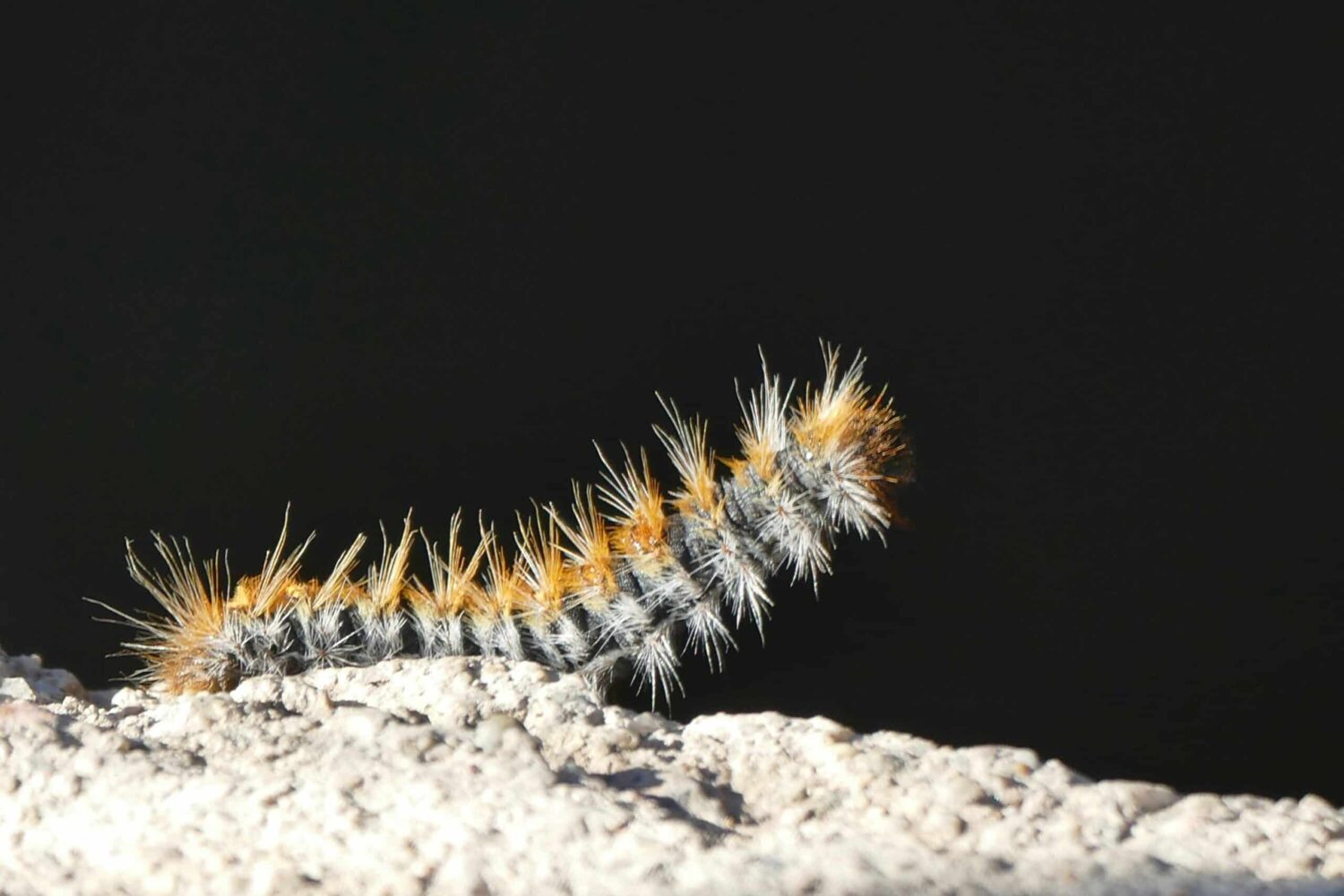This time of year is when they are most active, so extra caution is needed
As we step into spring, Cadela Carlota would like to issue an urgent warning to all pet owners, volunteers, and animal lovers across Portugal: beware of the processionary caterpillars. These creatures may look harmless, but they pose a serious threat to our pets and wildlife.
What are processionary caterpillars?
Processionary caterpillars (Thaumetopoea pityocampa) are found in pine trees and descend in long, nose-to-tail lines to find a place to pupate. Their tiny, toxic hairs can cause severe allergic reactions, not only in animals but also in humans. This time of year – late winter and early spring – is when they are most active, so extra caution is needed.
Signs to look out for
- Caterpillars on the ground – Typically seen moving in long processions, often in sandy or grassy areas near pine trees.
- Cocoons in pine trees – White, cotton-like nests high up in pine trees are a sign of infestation.
- Pet distress – If your pet has come into contact with the caterpillars, you may notice excessive drooling, swelling of the tongue, pawing at the mouth, difficulty breathing, or vomiting. In severe cases, necrosis of the tongue can occur, leading to life-threatening complications.

What to do if your pet is exposed
- Act fast – Contact your vet immediately. Time is critical in preventing serious damage.
- Avoid touching – Do not attempt to remove the caterpillar or its hairs with bare hands, as they can cause skin irritation.
- Flush the area – If possible, rinse your pet’s mouth and affected areas with water to help remove any hairs. However, this should not replace professional veterinary treatment.
- Monitor symptoms – Keep a close eye on your pet and follow the vet’s instructions carefully.
Recent sightings and action taken
A nest was recently discovered and safely destroyed just outside our shelter. This serves as a stark reminder of the danger these caterpillars pose to animals in our care and in the wider community. We urge everyone to remain vigilant and report any nests they see to local authorities.

How to prevent exposure
- Avoid walking dogs in pine forests or near infected trees during peak season.
- Keep pets on a lead to prevent them from sniffing or playing with caterpillars.
- Report sightings of caterpillar nests to your local council or forestry department for safe removal.
At Cadela Carlota, our priority is the safety and well-being of all animals. By staying vigilant, spreading awareness, and acting quickly in case of exposure, we can protect our furry friends from these dangerous caterpillars.
For more information, please follow us on social media or visit our website. Stay safe and keep a close eye on your pets!




















